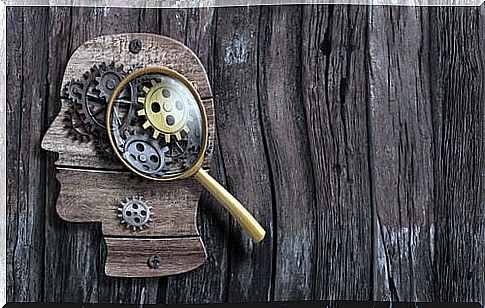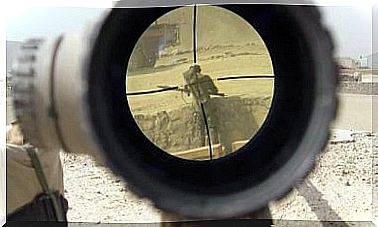Forensic Psychologist, What Are Your Duties?

Forensic psychology is a branch of psychology. The latter is in charge of the mental processes that underlie a subject and that end up guiding their behavior. Therefore, it can be deduced that the first of the subjects is oriented to the evaluation of the mental capacities of a subject in the judicial field.
The forensic psychologist will be the professional who will be in charge of technical advice to prosecutors, judges, lawyers, etc. regarding the psychological field and its relationship with justice. His work is oriented to the study of the minds of the subjects in relation to the justice system and administrations.
Functions of the forensic psychologist
The forensic psychologist participates in the different judicial processes in which his presence is requested. It will be in charge of collecting the necessary information, examining the subject, preparing surveys, etc. and finally, presentation of evidence and results obtained. All this in order to answer the questions demanded by the judge.

The main function is to try to solve those doubts that arise to legal professionals. All the actors that participate in a judicial process do not handle knowledge in all social, relational, scientific matters, etc. Therefore, they need experts in each of them to help them clarify important elements for a correct resolution of the case.
We cannot forget that we live in an organic society: there is a great division of labor. Individuals specialize in a certain field, but they need the knowledge of the rest of society. A system of functional relationships is established between the different professionals. The cooperation of each is based on the capacities that each one can contribute to help meet the needs of the other.
Areas in which it participates
The forensic psychologist, as we have already announced, collaborates in the justice system. It is usually associated with criminal proceedings, focusing its performance on the criminal field. However, there are many other disciplines in which they are also required:
- Family law: determine if the parents are qualified to care for the child in a divorce process; guide the visiting regime; analyze the existing dysfunctionalities that may affect the minor due to separation, etc.
- Civil law: legal incapacitations regarding the free disposition of patrimonial assets, mainly.
- Criminal law: criminal responsibility (if the subject knew what he was doing and acted voluntarily based on that knowledge); effects of violence on the victim; existence of any possible disorder, etc.
- Labor law: labor injunction; situations of harassment at work (possible impact on their daily work), etc.
- Minors: credibility of the testimony; psychological sequelae, etc.
Preparation of reports
The reports are the documents prepared by the experts in which the questions posed by the judge are answered. They serve as expert evidence. The forensic psychologist should make a report when asked for an opinion on a judicial matter.
The content of the report must be precise and concrete, omitting any detail that is superfluous. You must get straight to the point of the matter. Likewise, your wording should be clear, trying to avoid very specific jargon. We cannot forget that these types of documents are delivered to people not versed in the world of psychology or the scientific field. Due to this, we should not be extremely technical because what we want to convey would not be understood.

Likewise, we cannot go beyond the parameters of objectivity and scientific rigor. Any psychological test that has been carried out must be duly reviewed. Its usefulness, the way in which it was proceeded, the results obtained, its reliability, etc. will be indicated.
Professional profile
As is evident, it will be necessary for the forensic psychologist to have university training in the degree of Psychology. In addition, you will have to be specialized in this branch. In addition, not only this is enough. You must have continuous training and be aware of the news that arise in this field in different scientific articles.
On the other hand, not only knowledge in psychology is useful, but you must also have knowledge in Law. Obviously, he will work within the Administrations. Therefore, you must know how the process is carried out as well as the different laws that protect it and that, in the same way, determine the sanctions that can be imposed for malpractice.
But not everything is based on academic education. The forensic psychologist cannot allow himself to be emotionally involved in the case at hand, as it would cloud the mission for which he has been entrusted as an expert . Empathy is also a trait that will be valued, as is tolerance for frustration. Assertiveness, good public speaking, will be a characteristic that will score points in your work environment.
In short, the forensic psychologist breaks with the idea of the stereotypical profession of the psychologist that series and movies can show. Legal and forensic psychology is a field that is sometimes unknown but necessary to solve questions that need a more scientific point of view.









